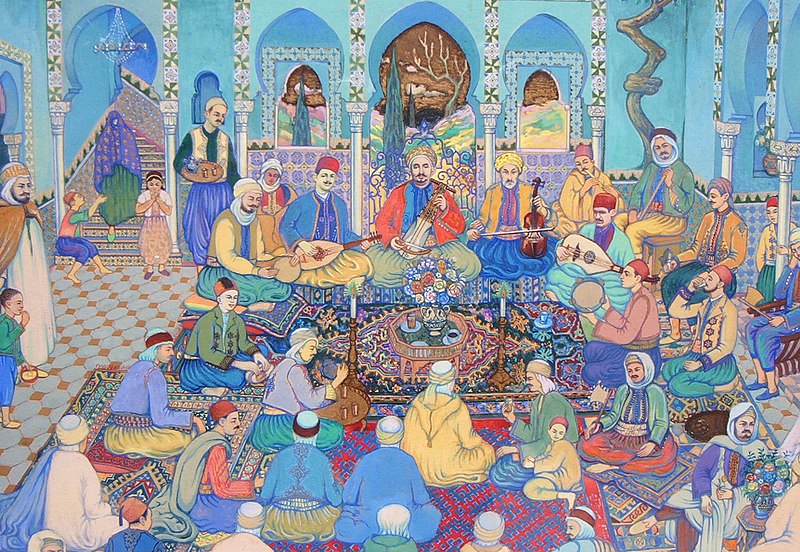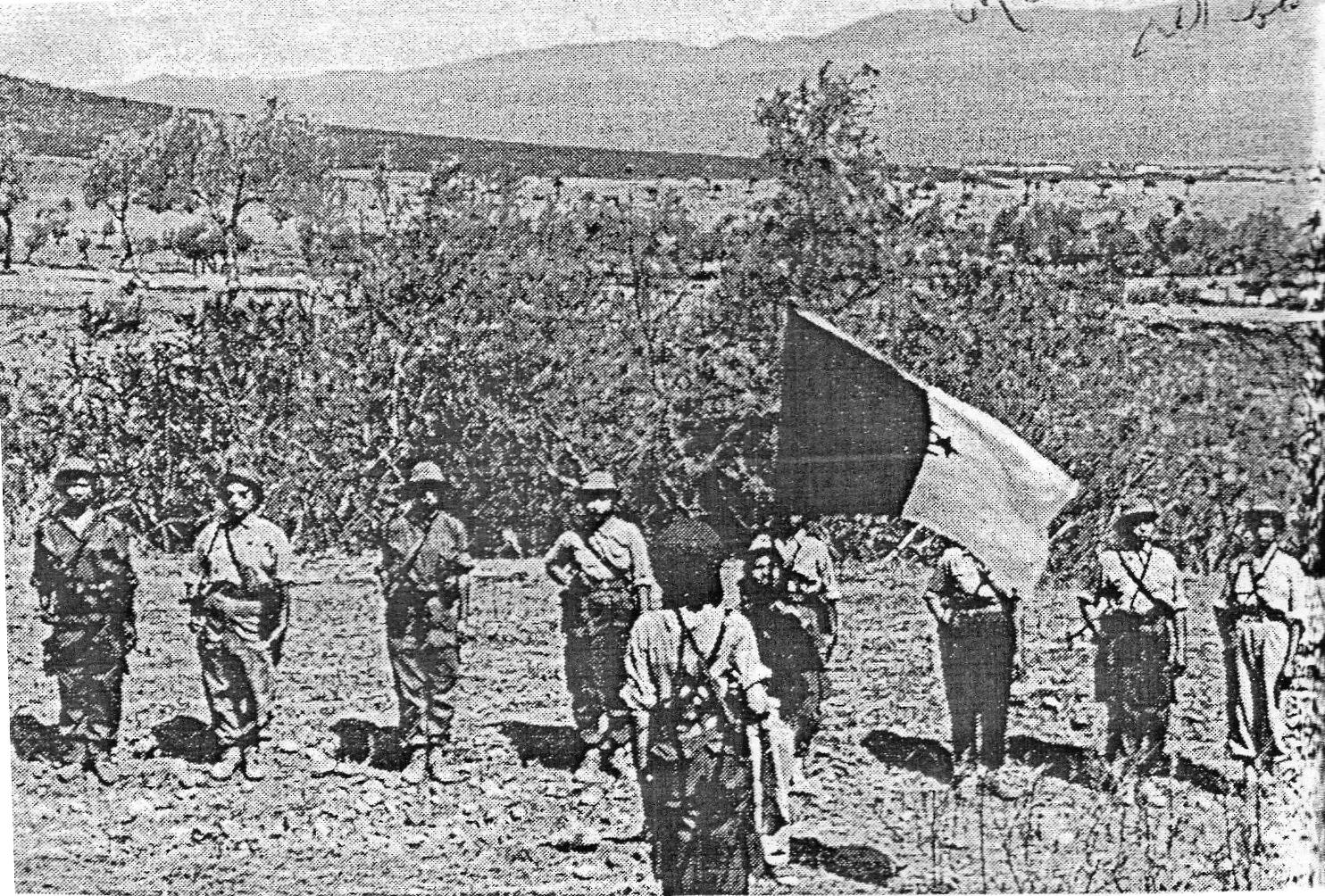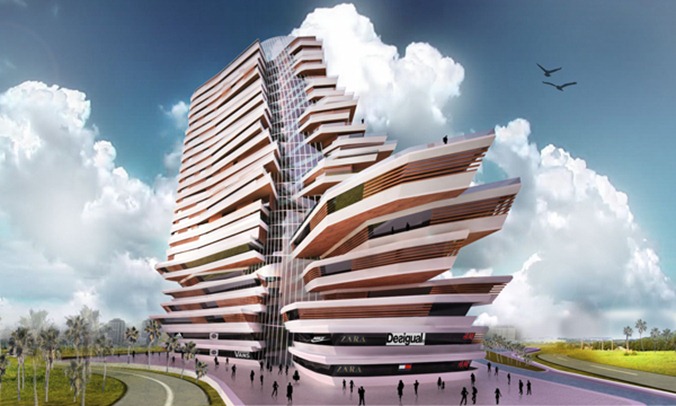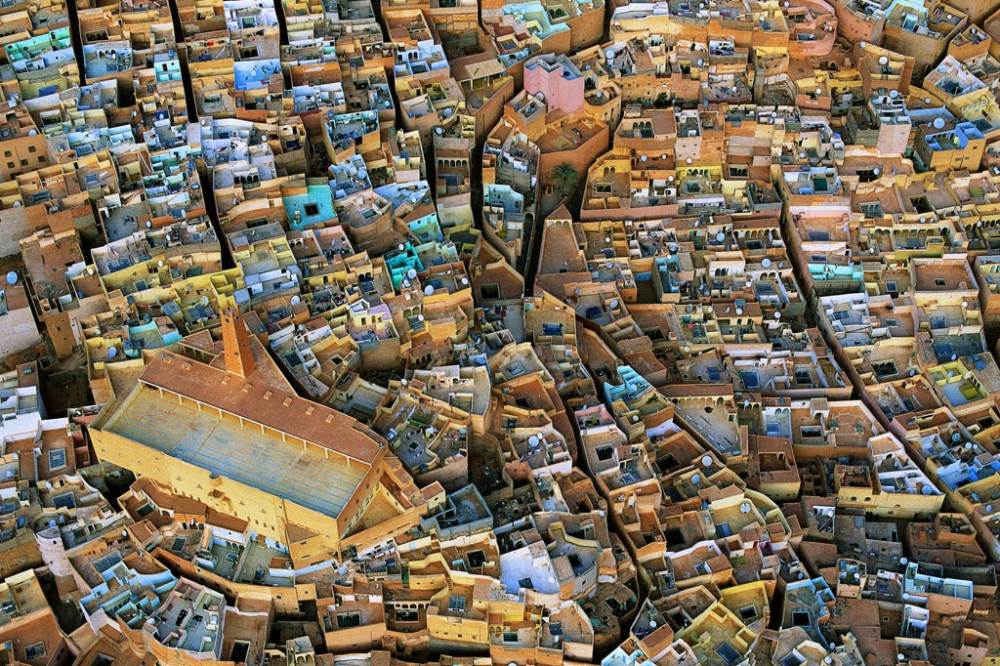Algeria
Algeria (Listeni/ælˈdʒɪəriə/; Literary
Arabic: الجزائر al-Jazāʼir;
Algerian Arabic and Darija:Dzayer, ⴷⵣⴰⵢⴻⵔ; French:
Algérie), officially The People's Democratic Republic of Algeria, is a country
in the Maghreb region of North Africa on the Mediterranean coast. Its capital
and most populous city is Algiers. Algeria is a semi-presidential republic, it
consists of 48 provinces and 1541 communes. With a population of 37.9 million,
it is the 35th most populated country on Earth. With an economy based on oil
resources, manufacturing has suffered from what is called Dutch disease.
Sonatrach, the national oil company, is the largest company in Africa. Algeria
has the second largest military in North Africa with the largest defense budget
in Africa. Algeria had a peaceful nuclear program by the 1990s.
With a total area of 2,381,741 square
kilometres (919,595 sq mi), Algeria is the tenth-largest country in the world,
and the largest in Africa and in the Mediterranean.The country is bordered in
the northeast by Tunisia, in the east by Libya, in the west by Morocco, in the
southwest by Western Sahara, Mauritania, and Mali, in the southeast by Niger,
and in the north by the Mediterranean Sea. Algeria is a member of the African
Union, the Arab League, OPEC and the United Nations, and is a founding member
of the Arab Maghreb Union.
The territory of today's Algeria was
the home of many ancient prehistoric cultures, including Aterian and Capsian
cultures. Its area has known many empires and dynasties, including ancient
Berber Numidians, Lybio-Punic Carthaginians, Romans, Vandals, Byzantines, Arab
Umayyads, Berber Fatimids, Berber Almoravids, Berber Almohads, Turkish Ottomans
and the French colonial empire.
Climate:
In this region, midday desert
temperatures can be hot year round. After sunset, however, the clear, dry air
permits rapid loss of heat, and the nights are cool to chilly. Enormous daily
ranges in temperature are recorded.
The highest official temperature was 50.6 °C (123.1 °F) at In Salah.
Rainfall is fairly plentiful along the coastal part of the Tell Atlas, ranging
from 400 to 670 mm (15.7 to 26.4 in) annually, the amount of precipitation
increasing from west to east. Precipitation is heaviest in the northern part of
eastern Algeria, where it reaches as much as 1,000 mm (39.4 in) in some years.
Farther inland, the rainfall is less plentiful. Algeria also has ergs, or sand
dunes, between mountains. Among these, in the summer time when winds are heavy
and gusty, temperatures can get up to 110 °F (43.3 °C).
Culture:
Modern Algerian literature, split between Arabic, Kabyle and French, has been strongly influenced by the country's recent history. Famous novelists of the 20th century include Mohammed Dib, Albert Camus, Kateb Yacine and Ahlam Mosteghanemi while Assia Djebar is widely translated. Among the important novelists of the 1980s were Rachid Mimouni, later vice-president of Amnesty International, and Tahar Djaout, murdered by an Islamist group in 1993 for his secularist views.
Malek Bennabi and Frantz Fanon are noted for their thoughts on decolonization; Augustine of Hippo was born in Tagaste (modern-day Souk Ahras); and Ibn Khaldun, though born in Tunis, wrote the Muqaddima while staying in Algeria. The works of the Sanusi family in pre-colonial times, and of Emir Abdelkader and Sheikh Ben Badis in colonial times, are widely noted. The Latin author Apuleius was born in Madaurus (Mdaourouch), in what later became Algeria.[citation needed]
Contemporary Algerian cinema is various in terms of genre, exploring a wider range of themes and issues. There has been a transition from cinema which focused on the war of independence to films more concerned with the everyday lives of Algerians.
 |
| Algeria Culture |
| Religion in Algeria, 2010 (Pew Research) | ||||||||||||||||||||||
|---|---|---|---|---|---|---|---|---|---|---|---|---|---|---|---|---|---|---|---|---|---|---|
| Religion | Percent | |||||||||||||||||||||
| Islam | 97.8% | |||||||||||||||||||||
| None | 1.8% | |||||||||||||||||||||
| Other | 0.4% | |||||||||||||||||||||
Algerian War الثورة الجزائرية
The Algerian War, also known as the
Algerian War of Independence or the Algerian Revolution (Arabic: الثورة الجزائرية
Ath-Thawra Al-Jazā’iriyya; French: Guerre d'Algérie, "Algerian War")
was a war between France and the Algerian independence movements from 1954 to
1962, which led to Algeria gaining its independence from France. An important
decolonization war, it was a complex conflict characterized by guerrilla
warfare, maquis fighting, terrorism, the use of torture by both sides, and
counter-terrorism operations. The conflict was also a civil war between
loyalist Algerians believing in a French Algeria and their insurrectionist Algerian
Muslim counterparts.[5] Effectively started by members of the National
Liberation Front (FLN) on November 1, 1954, during the Toussaint Rouge
("Red All Saints' Day"), the conflict shook the foundations of the
French Fourth Republic (1946–58) and led to its eventual collapse. In 1961,
president Charles de Gaulle decided to give up Algeria—which was up to then
regarded as an integral part of France—after conducting a referendum showing
huge support for Algerian independence. The planned withdrawal led to a state
crisis, to various assassination attempts on de Gaulle, and some attempts of
military coups. Most of the former were carried out by the Organisation de
l'armée secrète (OAS), an underground organization formed mainly from French
military personnel supporting a French Algeria, which committed a large number
of bombings and murders in both Algeria and the homeland to stop the planned
independence.
At the time when the independence came
into force in 1962, 900 000 European-Algerians (Pieds-noirs) fled to France, in
fear of the FLN's revenge, within a few months. The government was totally
unprepared for the vast number of refugees who caused significant turmoil in
France. The greatest part of the Algerians having worked for the French were
deliberately left behind, though de Gaulle himself estimated a ″bloodbath″
among them once the French would be gone. In particular the Harkis, having
fought as soldiers on the side of the French army, were regarded as traitors by
the FLN. Between 50 000 and 150 000 Harkis and family members, disarmed by
French officers before they left, were murdered by the FLN or lynch-mobs, often
after being abducted and tortured. About 91,000 managed to flee to France, some
with help from their French officers acting against orders, and today form a
significant part of the Algerian-French population.
The Algerian War has long been treated
as a taboo by French authorities; only in 1999 the national assembly passed a
law officially allowing to use the term guerre d'Algérie ("Algerian
War") instead of a number of previous euphemistic paraphrases.[6] Today,
the conflict is widely regarded as a prototype of a modern asymmetrical war
with regular military fighting informal insurgents recruited from the civilian
population. The unconventional, often illegal and human rights violating
counter-insurgency measures applied by the French military against the FLN,
namely torture, forced disappearances and illegal executions, were widely
regarded as militarily successful, but also to have significantly weakened the
French position due to the ensuing moral and political controversy. Similar
measures were later employed in a number of conflicts, especially during the
1970s and 1980s era of right-wing military dictatorships in Latin America
battling and often killing any potential opposition in what became known under
the Argentinian term Dirty War (Guerra Sucia). According to a number of
sources, this happened with the official assistance of French military advisors
and also exiled OAS-members. Early during the occupation of Iraq, the
Directorate for Special Operations and Low-Intensity Conflict of the Pentagon
used the famous 1966 semi-documentary movie The Battle of Algiers as a show
case for successfully defeating an insurgency and yet losing the "war of
ideas












1 comments:
There is a proverb that "antiques are better than other ones" and in some cases it is with enormously compatible subsequent to online casinos. Because supplementary bets are entering jackpots and other games. Sometimes it is no bigger than the original version. Therefore, once the bet result is not the result, the average casino upington casino wins or loses. Follow your plan. Don't modify whatever hurriedly without first planning.
Post a Comment